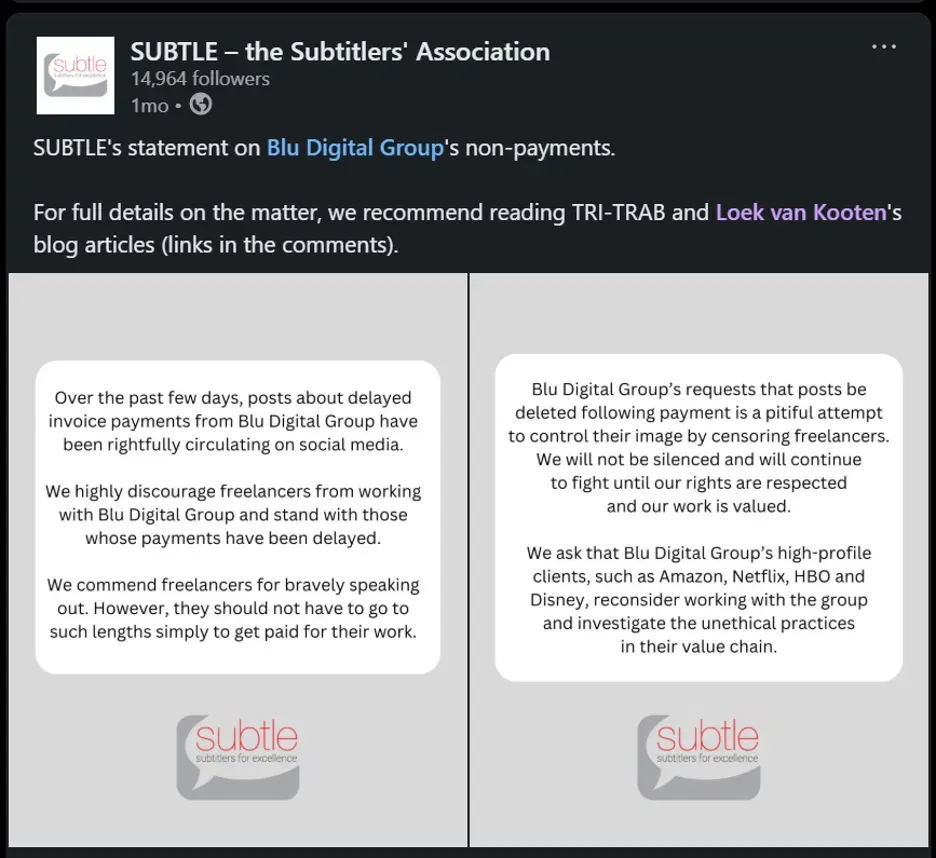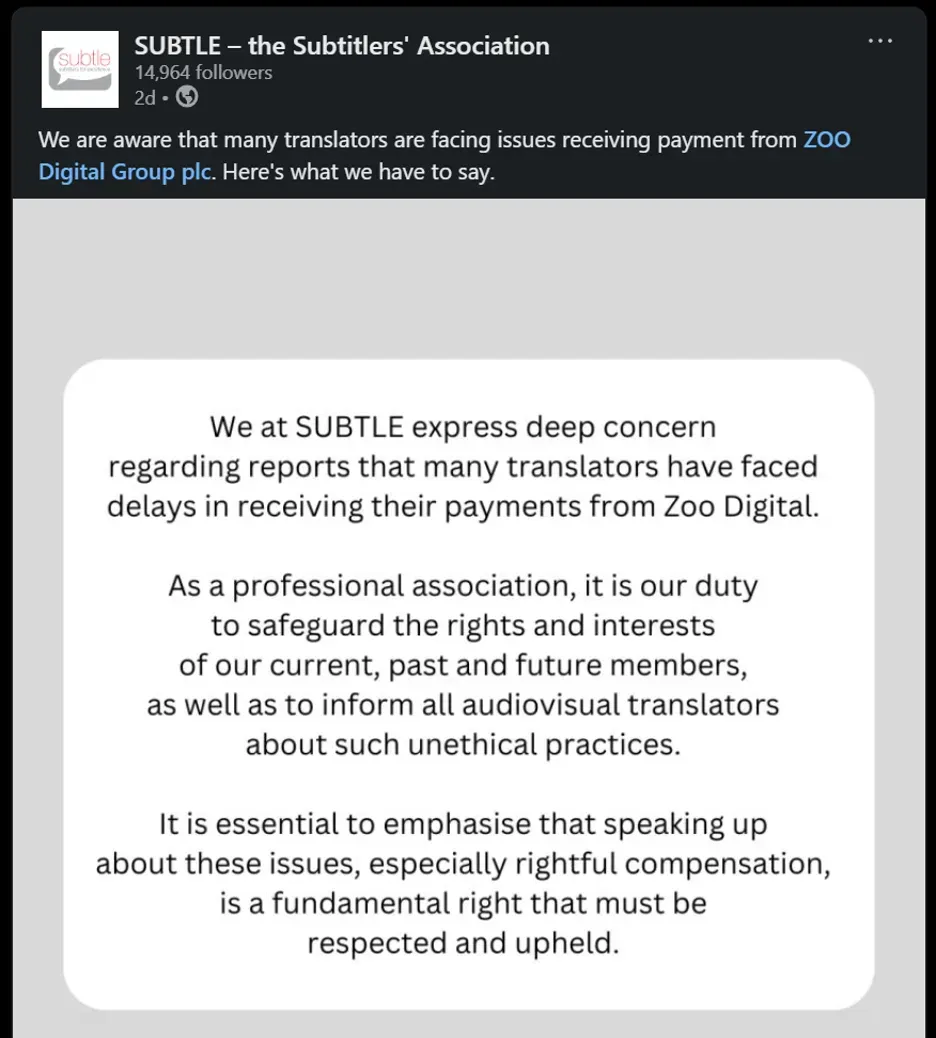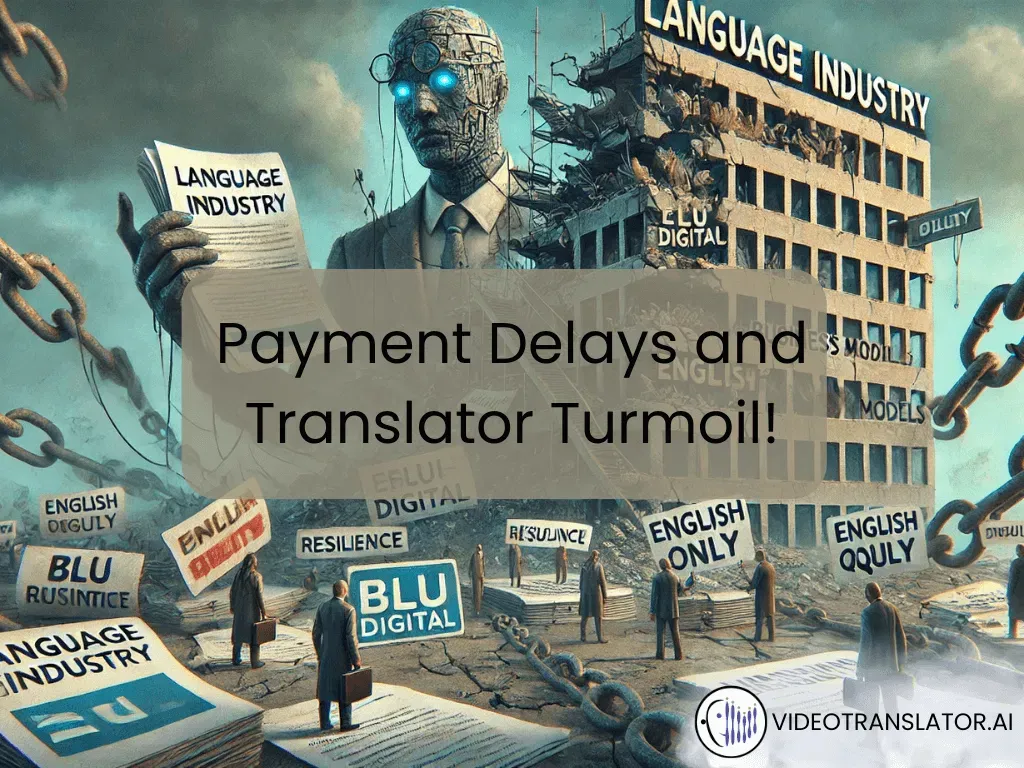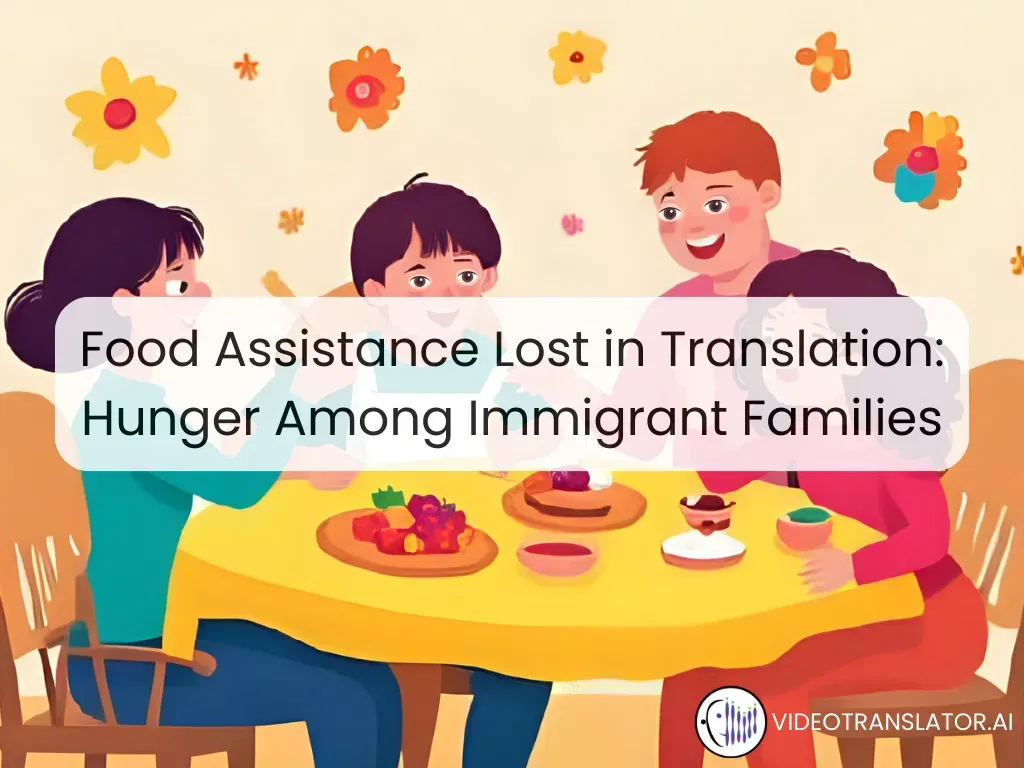Language Operations (LangOps) defined workflows enabling real-time translation solutions are the future.
And possibly a way out for the industry.
Okay, so that’s what I think. But why?
The language services industry is experiencing a seismic shift, and nobody has fully figured out how to navigate this new terrain.
Once poised to become key players, companies like Blu Digital now face turmoil.

And they aren’t the only ones!

While we are hopeful everything works out, especially in meeting translator payment obligations, this indicates that old business models are fraying at the edges.

Also, the issues posed by the Trump administration’s designation of English as the national language, i.e. regulatory reforms hitting up to 70% of LSP revenue from language access obligations.
Read More: Words Under Siege: The Struggle of Language Services in Trump’s English Only Era
This uncertainty could still create a more resilient and equitable framework for providing translation services.
If the industry as a whole doesn’t adapt, it risks losing the vital human element that makes global communication possible!
Why The Language Services Business Model No Longer Works
Cash Flow and Payment Models Need Reinvention
- Why it matters: Freelance translators often shoulder immense workloads yet remain at the mercy of outdated accounts-payable cycles or budgets built on fragile margins.
- Industry context: Traditional agencies frequently rely on net-30 or net-60 payment terms and can delay payment until after end clients have paid them. This is unsustainable for many translators, especially in a gig-based economy.
Technology Is Reshaping the Industry, but the Transition Is Bumpy
- Why it matters: Machine Translation (MT) and AI-driven workflows rapidly cut into once-reliable revenue streams. Agencies scramble to adapt, but confusion often reigns over integrating human translators into new tech-based models.
- **Industry context: **The race to adopt new tech can outpace the ability to develop stable processes. As a result, smaller or rapidly growing companies may experience management and financial strain—like the difficulties Blu Digital is reportedly facing.
The Future Business Models Are Still Emerging
- Why it matters: With accelerated globalization, clients want faster, cheaper, and more specialized translation solutions. Yet, no one has fully cracked the perfect model that satisfies translator needs for fair compensation, meets client expectations for speed and quality, and effectively leverages new technology.
- Industry context: We are in a transitional phase reminiscent of other industries disrupted by digital transformation. Companies that figure out how to balance human expertise with advanced technology— and pay well for that expertise —will likely define the next phase of language services.
Recent Events Which Point To A Failing Business Model
Blu Digital’s Rapid Growth
Blu Digital, known for providing localization and post-production services, has expanded quickly in recent years. Their growth spurt seems to have outstripped their operational and financial processes, leading to delays in paying freelance translators.
Translator Testimonies
Numerous translators have taken to industry forums to recount late or missing payments. Some describe chasing overdue invoices for months, indicating deeper cash flow or management issues. Others say they were given contradictory messages about when or if payments would be made.

Industry-Wide Pressures
Blu Digital’s situation is not unique. Other agencies have faced temporary setbacks when large end clients delayed payments or requested repeated rework. While this is a common pain point, Blu Digital’s case reveals the cracks in a model that depends on floating wages for weeks or months at a time.

The Uncertainty of Tech Integration
In some cases, Blu Digital and similar companies have touted or tested AI-enabled workflows to cut costs. While potentially helpful in the long run, these experiments can create uncertainty among translators, who fear downward pressure on rates and worry about less stable project pipelines.
LangOps is also potentially the way forward here. We’ll be discussing more about this in the future too, but the term LangOps, while catchy, will need to provide solutions for real to make a difference.
Potential Industry Solutions
Some smaller language service providers are experimenting with instant payment platforms. Others are exploring subscription-like models or guaranteed advance payments for highly qualified translators. If they succeed, such experiments might lay the groundwork for the next generation of fair, stable, and innovative language services.
In Closing
This crisis at Blu Digital, among others—marked by delayed payments and growing translator dissatisfaction—reflects deeper issues within the language services industry.
Yes, it’s a sign of significant transformation, and solutions are still emerging. However, one thing is clear: if organizations expect professional translators to remain on their rosters, they must treat them as valued partners rather than cost liabilities.
In an age where content crosses borders with astonishing speed, the best path forward will demand better technology, transparent contracts, and most importantly, respect for the human skill that carries every word across cultural divides.
Resources
Has Blu Digital Group failed to pay you too? | LinkedIn [one of the original articles which raised the issue]
“blu digital group” | Search | LinkedIn [this is just ugly]
Loek van Kooten | LinkedIn [has covered this extensively!]
SUBTLE – the Subtitlers’ Association: Posts | LinkedIn [industry group highlighting the issues]



